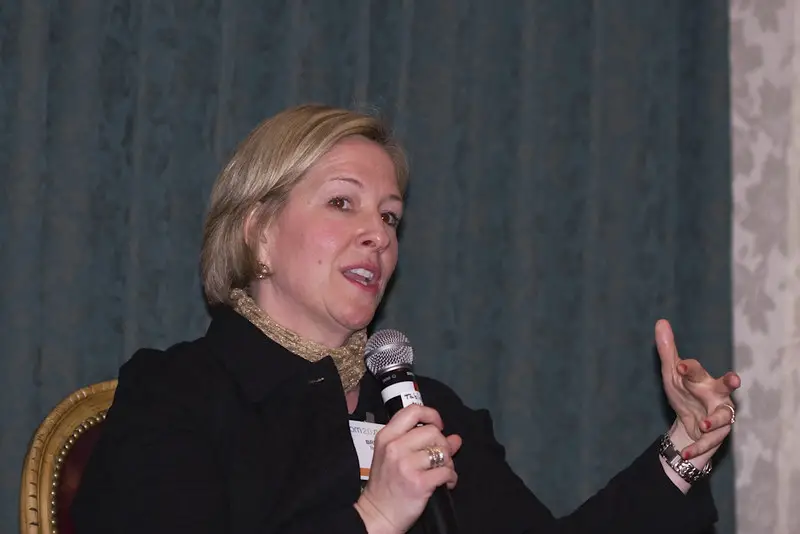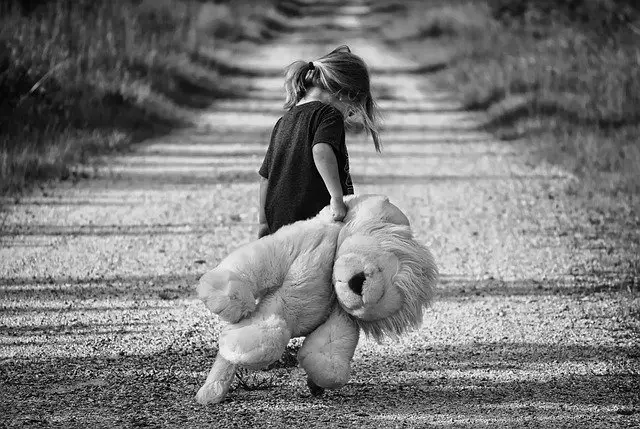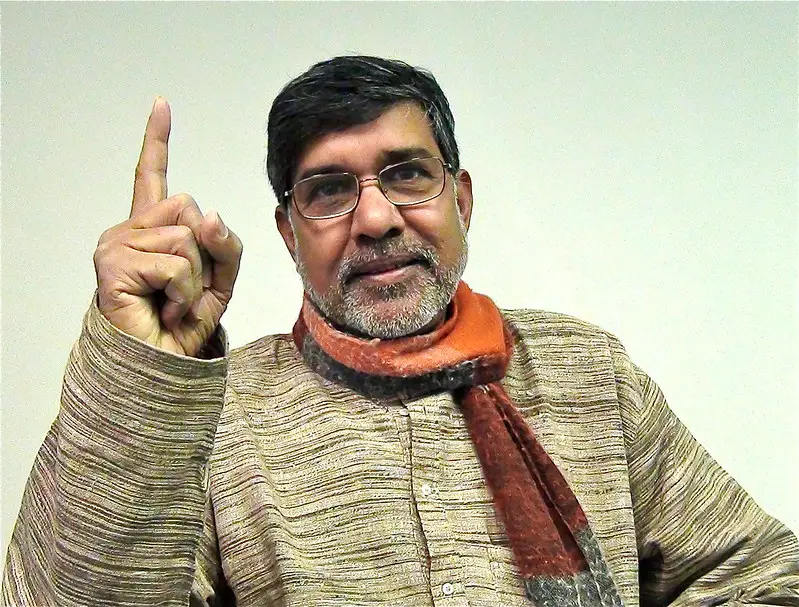Day by day we see our world getting more divided. We used to assume that technological developments would make the world more united, and help us to establish a global community with common goals and values. However, the internet has mostly gathered the people who had already the same ideas rather than uniting opposing opinions. As consequence, we’re likely to build our social environments with people who are identical to us, therefore, to divide the society between us and the others.
People usually don’t prefer to be isolated or to be alone. So, joining a group has a temptation for human beings, although it sometimes ends up partisanship. Whereas these groups usually deepen our loneliness, particularly when they don’t provide us with personal relationships. So, to solve this problem we should honestly interrogate ourselves, and ask some bold questions to our souls: Can belonging somewhere and understanding our positions in the world bring us peace?
Try Audible and Get Two Free Audiobooks

Chapter 1 – We always search the places to which we belong, and it can hurt if we don’t find it.
Since our childhood, we are in the pursuit of a place that we would fit in and we hope that we could finally find harmony there. What we try to find is a sense of belonging, which is mostly an essential request rather than being a simple longing.
The absence of this feeling of belonging could be very sorrowful for us.
Compared to today, racism was more prevalent and harmful in the USA when the author Brené Brown began living in New Orleans. Even segregation in schools still existed. Her name caused her many difficulties among both societies, whether Black or white. Since her white classmates considered her middle-name Cassandra as African-American, she was harassed in class and never included in the extracurricular gatherings.
On the rare occasions that she was invited by her African American friends, her friends’ parents often got surprised to receive a visit by a white girl. Even today, Brown can feel the same pain that she had to bear as a four-year-old girl, the pain of being belonged nowhere.
The thing that could cause much more pain is the feeling of not belonging in your own family.

They returned to Houston when she was a teenager. There she wonderfully wanted to join her new school’s cheerleading team, the Bearkadettes. As a part of her preparation for the auditions, she made a liquid diet for two weeks. Also, she was severely strict on her practice routine. However, although her performance was undisputedly successful, they refused Brown’s entrance to the team and told that she didn’t have a Bearkadette vibe.
Given the fact that her mother was a member of Bearkadette and her father was a popular player of the football team, this refusal caused a great deal of pain to her. She saw the disappointment of her parents, so she felt like her family rejected her as well as the team.
She continued to feel the same pain during her adulthood and began drinking to suppress it.
Although she tried to get support from Alcoholics Anonymous, this group didn’t provide her with much relief. Soon after, the AA sponsor suggested her to change the group because Brown couldn’t fit into AA. So, at the recommendation of her mentor, she tried Co-Dependents Anonymous that lead people to establish good relationships. However, she wasn’t accepted by the new group and told to change it either.
Brown’s multiple addictions were problematic. Drinking and co-dependent relationships were just two of them and formed only a little portion of her problems. These problems had their races within her childhood that passed with the continuous feeling of belonging nowhere, and such feeling still hurt her deeply.
Chapter 2 – If you’re belonging only to yourself then you’re in the right place.
Refusal isn’t the only reason that keeps you away from the feeling of belonging. Sometimes we continue to feel like a stranger even though we’re accepted into a gathering or a party. Or sometimes, we consider what we have done for pleasing other people to get acceptance and that makes us hate ourselves.
If you think about it seriously, you’ll see what does it take from us. We spend a great deal of time and energy to feel belong somewhere. However, as the author has discovered, people can feel truly belong when they don’t need others’ acceptance when they stop aiming for belonging to them.
In 1987 Brown found the man of her life, her future husband Steve. This was when Brown was living a messy life that only consists of parties, drinking, and smoking. Despite all, Steve could see her depths and understand her real character. Steve’s backing and encouragement gave Brown enough strength to change her self- destructing habits.
Thanks to the encouraging existence of her partner, Brown began a new and healthy voyage toward self-belonging. Thirty years later she would find herself appeared on Oprah where she shared details about her self-belonging plan.
Brown explained on Oprah that she listed her priorities, to-dos. And letting her be ridiculous, enjoying life, and seizing the day with fun was top on the list. This self-belonging strategy bring her to the life and in this way, she could truly focus on her life that she enjoyed each second of it. Because her story touched Oprah so deeply, she was asked for coming back for the next episode.

Her appearance on Oprah had a special meaning for her. Because at the end of the first episode that she appeared she met the poet and activist Maya Angelou, one of the public figures that Brown admired. Angelou gave her some advice that Brown doesn’t forget even today. She suggested: “Do not be moved, Brené”, which implies that she should be always herself event that would be the cost of contradicting other people’s opinions.
Six months later she applied this advice in an event in Chicago where she called for making a speech. As wearing “business attire” was requested, at first, she dressed so. But she felt uncomfortable in these elegant clothes and turned back her casual style consisting of jeans, shirts, and clogs. At the end of the day, she could impress the audience more than other speakers could do.
Chapter 3 – Belonging demands courage and trust as you sail through the wilderness.
What’s the secret of the wilderness that catches visions? It might be Bee Gees who sang “Voice into the Wilderness” or Jon Krakauer who narrates a journey into the Wild, regardless of its form, the wilderness has inspired several authors, musicians, and academics.
Wilderness is scary on one hand, but on the other hand, it tempts many artists. Because they metaphorically consider wilderness as an obstacle that they must surmount to record personal improvement.
You need to leave your comfort zone if you truly want to find this metaphorical wilderness. It might be anywhere that makes you face your doubts and your fragile parts, or anything that’s stranger to you.
So, you can find your wilderness hidden on the stranger people, an unusual occasion, as well as being enough bold to reject or accept.
Although the paths reaching the wilderness differ from person to person, all of them are rather challenging. The mythologist, Joseph Campbell explains that “Your path is created with every step you take.”

Individual journeys through the wilderness could be accompanied by a severe reflection, seclusion, or mystical learning. These activities might provide you with discovering true yourself and personal improvement. In the end, this attempt to find wilderness will function as a key that will open the doors of true belonging to you.
But discovering it isn’t enough to enter the wilderness. First, you need to learn certain “braving skills.”
Listening and the ability to bear hard and painful conversations are essential assets to be able to discover your path. You must allow your curiosity and your desire for enjoyment lead you, instead of leaving your life in the hands of fears and doubts.
Another skill you have to learn is to have faith in people as well as in yourself. To put it differently, you must be open and vulnerable to any external intervention that addresses directly to yourself or your values. It is challenging to have faith and be vulnerable at the same time, but you can build these features in you.
As described by the author, there are seven characteristics of a trustworthy person. These are: being dependable, admitting mistakes, knowing the limits, ability to keep secret, taking honorable decisions, avoiding pre-judgments, and being generous.
Taking these into consideration, interrogate yourself: At which level do you trust yourself and others?
Chapter 4 – We’ve always avoided the challenges, so loneliness has become widespread.
Have a look at the current news, you’ll become aware of the level of division in the world. Nowadays, people are more fanatic in terms of their ideological, political, or religious opinions. But does this division serve us to find a sense of belonging?
We desperately stick to these groups to escape the loneliness.
In the 1976 American election, the percentage of the citizens who lived in a county whose most locals voted for a particular candidate was 25. Whereas in 2016, the percentage of the counties where the locals voted either tremendously for Donald Trump or tremendously for Hilary Clinton was 80. This indicates how much the people have limited themselves with the individuals who share the same opinions with them over the four decades.
Like this, many other examples show how we’ve imprisoned ourselves in a “feedback loop”, as the journalist Bill Bishop states.
Today, people watch TV shows that repeat the same opinions as them; as well as read blogs, newspapers, and magazines that approach the issues from the same points of view. We escape the challenge or any confrontation with an unknown idea, so we put up a wall with people, publications, social activities, etc. that would always affirm us.
To belong a certain faction resembles being in a bubble. And once people enter that bubble, they’re inclined to feel lonelier than before.
That explains the reason why the percentage of Americans who feel themselves alone has remarkably increased since the 1980s. A scholar of psychology and neuroscience at Brigham Young University, Julianne Holt Lunstad points out that chronic loneliness has more damage to health than obesity, pollution, and alcohol. Furthermore, she’s discovered that the risk of premature death is increased by 45 percent if chronic loneliness is the case.

So, sticking within a certain group isn’t the best choice for us. We should broaden our horizons and be brave to meet new ideas or new places even if they challenge our visions.
Brown’s children Ellen and Charlie have often explained to her how they feel lonely in certain places, and friends’ houses make them feel lonely. Brown eventually discovered that these places never offered profound connections.
However, some places amazingly connect us and give hope, particularly the ones that contain music and art in it. All in all, if you truly want to find belonging, you need to search such places, not the groups that imprison us with the same ideas and meaningless conversation.
Chapter 5 – To escape loneliness, rely on your personal experiences and embrace them in calm.
Soon after you hit the road reaching belonging, you’ll realize that this road is full of contradictions.
To handle this, you need to concentrate on what you observe and directly experience, not what you’ve told by TV shows or by other people.
If you follow the actuality from a certain news channel, you might get the impression that both the Democrats and Republicans are selfish idiots. However, things go differently in real life. You might have someday a family urgency and you need a drive to the hospital, the person that sincerely want to help you with it is possibly a colleague having a contrast political idea with you.
You can experience such things every day. Solidarity is the human reality whereas political or ideological separations aren’t the real parts of human life.

Being polite to each other is also very important, particularly if we aim to correct their mistaken opinions, at least the ones we consider as such.
Hunting was the weekend activity of Brown’s family. One day while she was sharing her plans about teaching her son hunting, a stranger interrupted her and claimed that she supported the National Rifle Association (NRA). Being shocked, Brown firstly thought to react by yelling at that stranger because of his groundless assumption. But she didn’t behave so. She stayed calm, took a deep breath, put a smile on the face, and smoothly explained that supporting to have a responsible gun doesn’t mean directly to support the NRA.
As another way to unify rather than to divide is showing sympathy to your neighbors both in the happy or sorrowful times, even if you’re not very close with them. Maybe it entails going to see a football match where you hold the hands of your neighbors while cheering up the team, even if the sport isn’t normally your calling.
Finally, never forget that courage doesn’t mean you won’t feel vulnerable anymore.
Jen Hatmaker, one of the friends of Brown and a Christian community leader, has defended
the constitutional rights of the LGBTQ community, even if this position would bring relentless criticism of other Christians. Ignoring all the waves of anger, she remained to be open, polite, and sympathetic to her opponents.
Chapter 6 – Use your anger to find out your true self instead of letting it get bitter.
Are you grudging? If so, you surely have discovered how exhausting to remain furious at someone. That’s why as long as you keep your resentment, your anger inside you, you lose your changes to enjoy life.
You can handle the anger more effectively, but first, you must be defenseless and have some harsh self-conversation. However, this way isn’t practiced much in our society.
Just after the 9/11 attacks, society witnessed a beneficial period of solidarity, but then it turned out that the politicians attempted to use the nation’s fury caused by this painful destruction as a political tool that would drive the society into ideological camps.
Americans avoided to make meaningful examination about religious or ethnic identities, or the other possible factors that caused the attacks, instead, they nurtured a feeling of patriotism and furnished their houses or cars with American flags. However, as has been the case for many other nations, no nation could remain united for long with plain patriotism.
We could profit from our anger more positively and beneficially.
As Kailash Satyarthi, a Nobel Laureate stated in a TED Talk speech from 2015, we hide our resentments suppressed inside our souls because society dictates us that it is bad to voice and let them out. However, suppressing them could end up in a more unpleasant way like violence, revenge, or oppression, as we witness the countless mass shootings, racist attacks in the USA.

If it’s controlled well and used properly, anger could be an effective tool to transform society into a positive unity. It would be the case especially when we use anger to challenge mistaken opinions.
The author Antoine Leiris’ wife was one of the victims of the 2015 Paris attacks. In the following days when he was still in grieve for her wife, Leiris wrote a letter called “You Will Not Have My Hate.” This letter stated that even though her wife had been killed violently, he and his 17-month-old son would pursue their lives in peace and wouldn’t let the hate control their lives.
Leiris resisted the terrorists by rejecting to be controlled by anger and become a disbelieving and frightening person. Instead, he declared that he would live a peaceful life by feeling the love in his heart. In another saying, Leiris remained honest to himself and built a way of belonging that was far away from being unreceptive.
Braving the Wilderness: The Quest for True Belonging and the Courage to Stand Alone by Brené Brown Book Review
As human beings, all of us instinctively want to belong. Sometimes we could spend a whole life in the pursuit of this feeling of belonging and this journey can dramatically transform us into different persons. Hence, after all, belonging is discovering the true selves and embracing this discovery with ease.
Don’t hesitate to contradict and have arguments with people but without assaulting them.
So, the next time you disagree with someone’s post on Twitter, or Facebook, behave consciously and don’t make insults. Nowadays, people consider social media as a commonplace where they can express their political or ideological ideas at the cost of insulting, hurting other people. However, things don’t go like that in the real debates. You might disagree with Ivanka Trump but this doesn’t give you the right to call her “bitch”, or you can criticize Obama’s politics without claiming he’s an “idiot.”
Try Audible and Get Two Free Audiobooks
